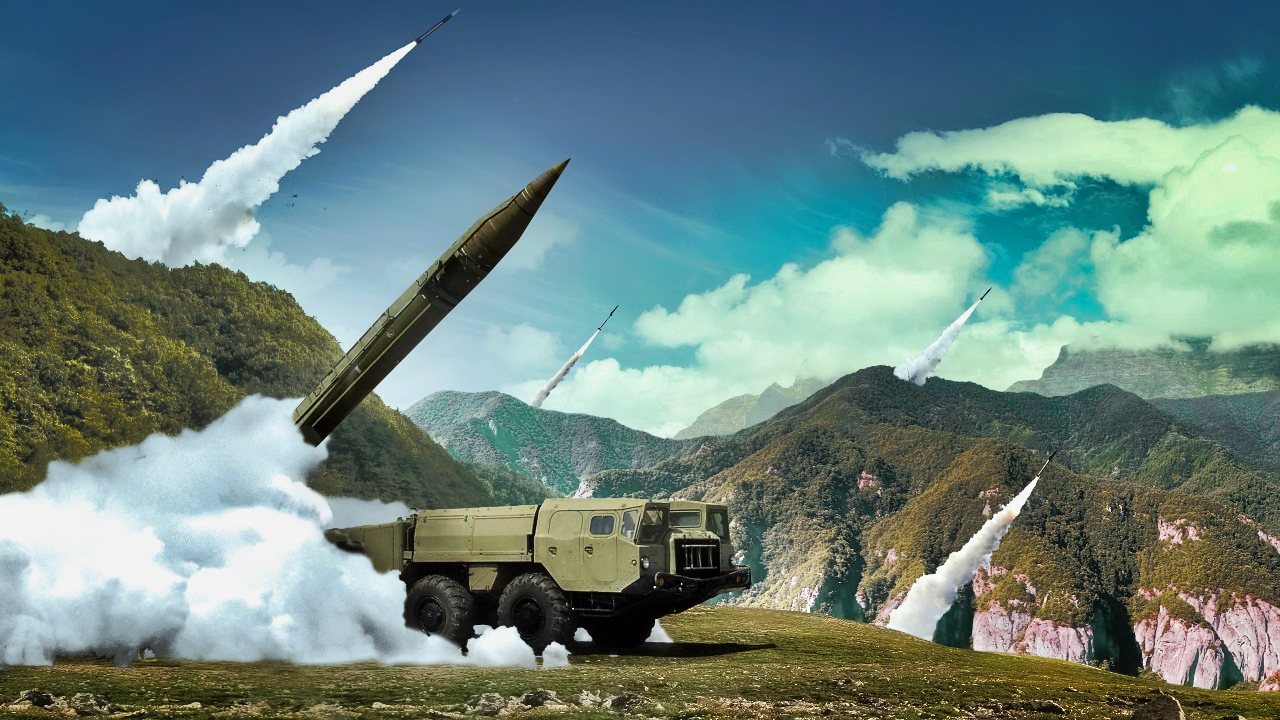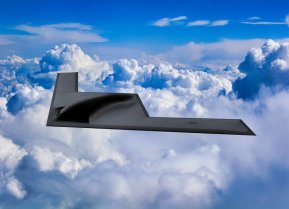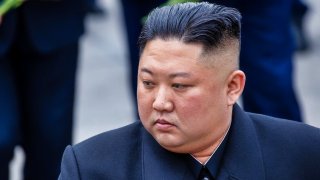Is Diplomacy Between the U.S. and North Korea Possible in 2024?
Suppose the United States wished to have another run at diplomacy with North Korea. Is there a way forward? Arguably, yes. However, in the last year of the Biden administration, with a seriously contested election in the offing, it is hard to argue that the timing is just right.
North Korea has been on a different course in recent years than the path it seemed to follow in earlier decades. The transition from the Clinton-Bush administrations’ slow, drawn-out negotiations, interrupted by the North with bursts of provocation—sinking ships, shelling islands, shooting down helicopters, testing nuclear weapons—eventually evolved into something entirely different. Over the last three years, the North has shown no interest in protracted negotiations with the United States. Instead of provocations designed to draw attention and create bargaining chips, it has settled on steady, determined testing of long-range ballistic missiles to deter any attempt at regime change and acquiring fissile material for an expanded nuclear weapons arsenal to threaten “first use” of nuclear weapons in the event of a conflict.

The transition came after nearly a decade of a U.S. policy of “benign neglect” at the end of the Bush administration and over the Obama years. This was termed, at one point, “strategic patience,” but considered by many observers as just another version of containment: no negotiations, continued sanctions, and cultivation of our essential alliance relations. Then came the Trump administration, which started with a sharp rise in tensions, exchanges of threats and insults but rapidly evolved into summitry, marked by expressions of warm feelings that made it seem as though the two leaders could, indeed, “meet for lunch” and settle all that troubled relations between their two countries. That did not work out: the Trump administration was not up for “patient engagement,” and the North would eventually see that it was not.
So, the Biden team faced a wary North Korean leadership and a rapidly changing international scene. Asia was widely perceived as marked by a rising China and a fading America. Europe was the scene of a resurgent Russia, with only Ukraine to hold it back—the rest of Europe and the United States apparently prepared to accept Russian aggression if military assistance was not enough to prevent it. In this new world, the third generation of Kim leadership in North Korea has chosen to maintain relations with Beijing, embracing its essential role as a Chinese buffer state while aggressively improving its relations with Moscow, becoming a sort of arsenal of dictatorship.
Before reaching the unhappy conclusion that, since the prerequisites for diplomacy seem absent, we should expect “more of the same” in the coming year, it might be prudent to consider the possibility that we may not be so lucky. We should at least entertain the thought that nuclear war could break out in Northeast Asia in 2024.
How could that happen? Let’s count the ways. First, there’s everybody’s favorite crisis, the Taiwan contingency. Imagine a Beijing-perceived Taiwanese provocation leading to Chinese moves and prompting U.S. countermoves, with neither side certain how far the other is prepared to go. Yet, both sides intend to signal their determination not to back down. This is, roughly, U.S. policy. In this scenario, North Korea, with or without encouragement from China, acts to support China by issuing nuclear threats against U.S. assets and allies in Northeast Asia, posing for the United States the prospect of facing two nuclear weapons states in one theater—unless Russia chooses to make it three. Japan and South Korea have no nuclear weapons. They would depend on U.S. extended deterrence in this scenario, even though Seoul, at least, has no interest in becoming involved in a Taiwan contingency. This scenario requires serious thought because nation-states can be as opportunistic as their leaders.
In a less complicated scenario, imagine the North Korean leadership decides to use its nuclear weapons arsenal and delivery vehicles to compel South Korean compliance with the North’s political and territorial directives and to assure deterrence of U.S. intervention to honor its alliance with Seoul. It is essential in this scenario—and any others one might think of—that we understand what the United States would actually do is not the critical calculation. It is rather what the North Korean leadership believes it would do. The North may think that its developing ICBM capability will serve to not only deter a U.S. attempt at regime change but also undercut the credibility of U.S. extended deterrence to its allies in Asia. That calculation might well determine whether or not nuclear war breaks out.
If we are truly concerned about the possibility of nuclear war, it is not enough to think through how deterrence might fail as North Korean and Chinese nuclear arsenals grow. One should consider the other ways a nuclear war might start, which have nothing to do with the failure of deterrence. Consider the possibility of an accidental or even an unauthorized launch of nuclear weapons by the North Korean military. They are, after all, relatively new to this “game” as compared to the other states with nuclear weapons. And North Korean rhetoric on its willingness to use its nuclear weapons should not give us confidence that this would be such a low-probability event.
Suffice it to say that the growing nuclear weapons arsenals in Northeast Asia, in the context of a competitive and even hostile political environment, should give us pause. At least, we should consider the risks we run when we make diplomacy a policy of last resort.
But suppose the United States wished to have another run at diplomacy with North Korea. Is there a way forward? Arguably, yes. However, in the last year of the Biden administration, with a seriously contested election in the offing, it is hard to argue that the timing is just right.

That said, it is not wrong to consider what it would take to attract Pyongyang to discussions with Washington. The answer is simple but not easy. The United States must genuinely seek normalization of relations and keep denuclearization as a longer-term goal rather than a first step in the process. On the table for initial discussion would be sanctions relief, the character of military exercises with the ROK, and improvements in the North’s human rights policies— something in which Pyongyang has shown interest in the past and is essential to normalization. Simple, perhaps, but not easy.
About the Author: Ambassador Robert Gallucci
Ambassador Robert Gallucci is currently a Distinguished Professor in the Practice of Diplomacy at Georgetown University’s Walsh School of Foreign Service. He previously served as U.S. Ambassador-at-Large and Special Envoy for the U.S. Department of State, focused on the non-proliferation of ballistic missiles and weapons of mass destruction. He served as the chief U.S. negotiator during the North Korean nuclear crisis of 1994, as Assistant Secretary of State for Political-Military Affairs, and as Deputy Executive Chairman of the UN Special Commission following the first Gulf War. Upon leaving public service, Ambassador Gallucci served as Dean of the School of Foreign Service at Georgetown University for thirteen years before he became president of the John D. and Catherine T. MacArthur Foundation.
The main image and intext images are from Shutterstock.


